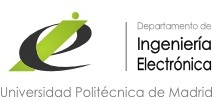Advanced Instrumentation (INST 1)
INTRODUCTION
BASIC SYSTEMS DATA ACQUISITION
- Applications of converters in data acquisition systems.
- Data collection plates.
- Data loggers.
INSTRUMENTAL COMPACT AND DISTRIBUTED SYSTEMS
- Compact systems: instrumentation buses.
- Distributed systems: fieldbus.
- Some proprietary systems.
INTELLIGENT SENSORS
- Advanced sensors.
- Wireless sensors.
- Networks of sensors.
- Regulations.
VIRTUAL INSTRUMENTATION
- Principles and philosophy of virtual instrumentation.
- Systems based on commands (SCSI).
- Development graphical environments (LabView).
- Architectures (SICL, VISA, IVI).
- SCADA.
MEASURES, METROLOGY AND PATTERNS
- Introduction to the measure.
- Expression and calculation of uncertainties A and B.
- Propagation of uncertainties.
- Calibration and traceability. Introduction to employers.
- Accreditation, certification: standards
Teaching methodology
The methodology consists of classes in which they are presented and proposed to develop the issues students must solve cases and present the teacher and the rest of the class, debating the solution adopted. This system is intended to engage students in the techniques developed in this subject and are aware of the training needs they require.
In the section on Virtual Instrumentation, during classes will be held, as an exercise, use practices and program design in posts LabView LFI Laboratory of Electronic Instrumentation.
In summary, the main lines which includes the teaching methodology of the course are:
- Master classes.
- Presentation and discussion of papers.
- Problem solving.
- Labs in Virtual Instrumentation.
The evaluation will be done by assessing the work / problems proposed along the course, with a total weight of 60% of the final grade, and a final exam multiple choice with the remaining 40%.
In the valuation of the proposed work will be considered, apart from the technical aspects, the ability to present, explain and defend the chosen solutions to the teacher and the rest of the course.

